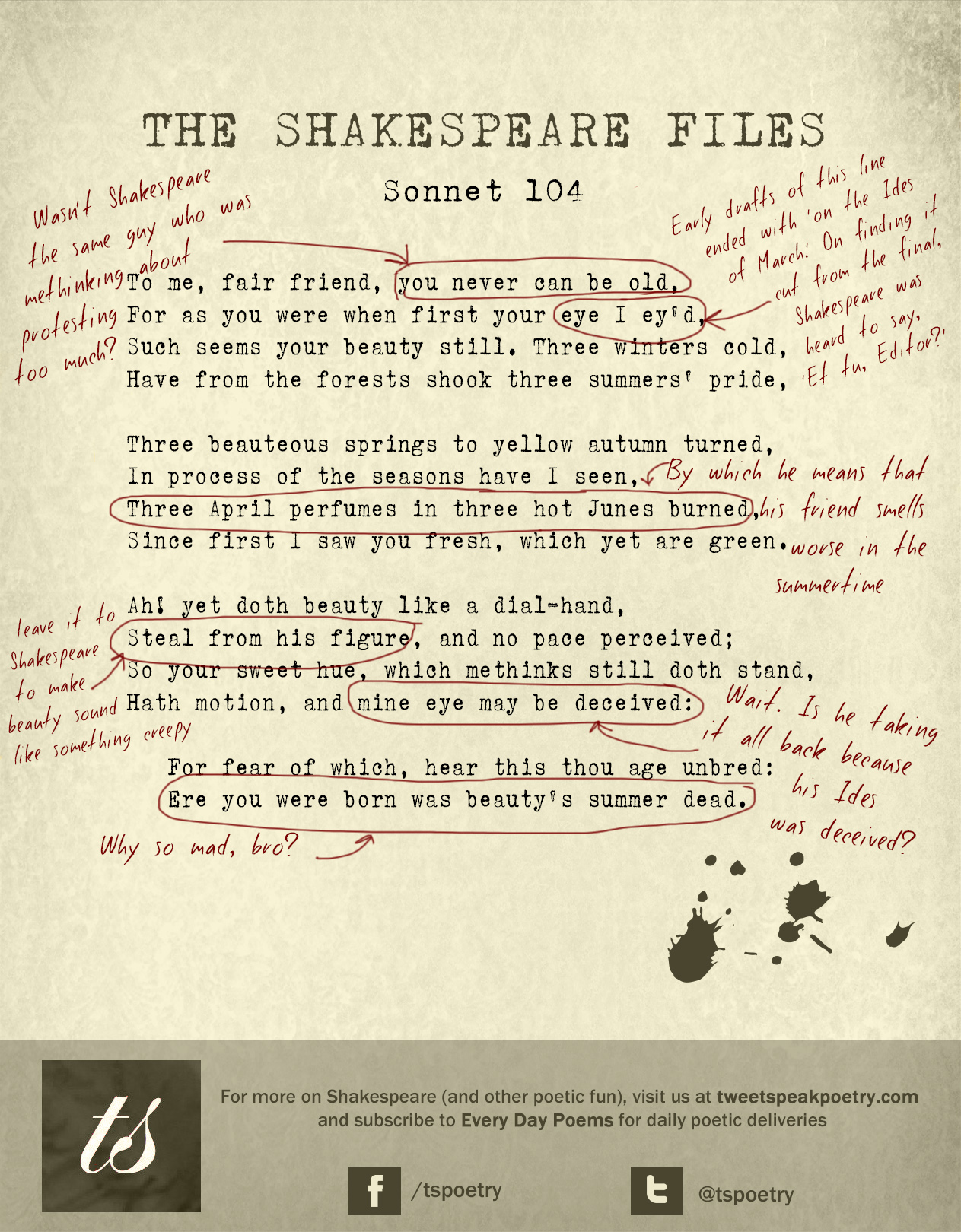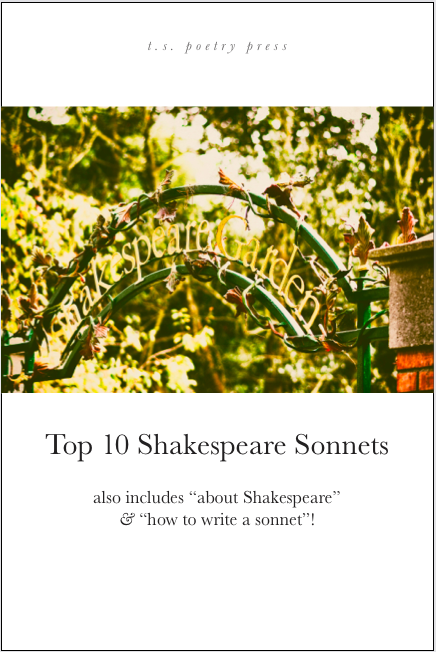

Through the use of metaphor, personification, and paradox, Shakespeare conveys his thoughts and feelings about time and its impact on our lives. In conclusion, Shakespeare's Sonnet 12 is a deeply reflective and thought-provoking poem that explores the idea of time and its fleeting nature. He also says that time "hath his world by the forelock," implying that it has a hold on us and that we are at its mercy.


He says that "the howling beasts, and savage nations" of the past have been replaced by "the sweet degrees" of the present, suggesting that time has the power to transform and change the world. In the final lines of the poem, Shakespeare reflects on the passage of time and its impact on our lives.

Similarly, he says that "the hours, minutes, and seconds" of time are both "bald" and "proud," suggesting that they are both insignificant and significant at the same time. For example, he says that "despairing minutes with too rough a hand / Doth wring the forehead," implying that time can be both rough and gentle. One of the most striking aspects of Sonnet 12 is the way in which Shakespeare uses paradox to convey his thoughts about time. This personification is further emphasized by the use of the metaphor "death's second self," which compares time to death, a common metaphor for the passage of time. The speaker then personifies time, saying that it "leaps" and "bounds" like a runner, suggesting that it is constantly moving and changing. The speaker then goes on to say that "the stretchèd metre of an antique song" is a more accurate measure of time than the clock, implying that time is something that cannot be fully captured by mere numbers. The poem begins with the speaker addressing time directly, saying "When I do count the clock that tells the time," suggesting that time is something that can be measured and counted. In this sonnet, Shakespeare uses a variety of literary devices, including metaphor, personification, and paradox, to convey his thoughts and feelings about time. The poem is written in the form of a sonnet, a traditional poetic form that consists of 14 lines and a strict rhyme scheme. William Shakespeare's Sonnet 12 is a poignant and thought-provoking poem that explores the idea of time and its fleeting nature.


 0 kommentar(er)
0 kommentar(er)
